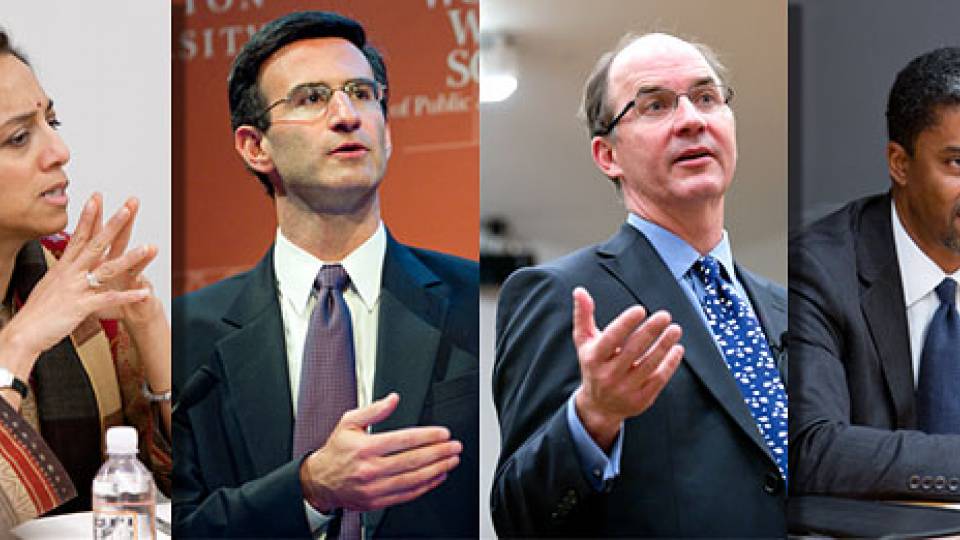If economic globalization is going to benefit everyone, and not just a select few, it is time to start forming new paradigms for global cooperation and human rights activism, according to Mary Robinson, former United Nations high commissioner for human rights and former president of Ireland.
"How can we have organized our world in such a way that 6 million children die [of hunger] each year, and it doesn't actually preoccupy us?" she asked during her lecture in Dodds Auditorium, Robertson Hall, on Thursday, Feb. 6.
Robinson seemed stunned at the possibility that people have so much information about the world and yet seem unaffected by what, she thinks, should prompt them to action.
"Harnessing globalization for children -- that's what we should be doing," she said during impassioned remarks. "Harnessing globalization for women, for the elderly, for the vulnerable. It's up to us. It's our world. I can't believe that as we know more and more about what's happening in our world, that we can turn the other way and not do something about it."
The best response, Robinson posited, is to "bring international human rights out of its box and into globalization." She pointed out the responsibilities and possibilities of governments, businesses, civic organizations and NGOs (non-governmental organizations associated with the U.N.) to approach human rights initiatives together. "It is recognized that to make a real impact, no one sector can do it alone," she stated.
For example, international groups could join forces to stem the global threat of HIV/AIDS by targeting educational programs toward the many girls and women who are caught in a cycle of poverty and disease, she said. Robinson also noted that she has met girls who were forced into prostitution as early as age 8, yet she still believes they could be saved if they could be properly educated.
The global climate following the tragic events of Sept. 11 also figured prominently in her discussion of security and other basic human rights. Robinson said that while military intervention is considered, "governments and citizens of powerful countries should do what they can to ensure that basic rights -- to food, to safe water, to education, to shelter, to health care -- are met in the developing world, or at least not have policies that hinder these countries."
Robinson served as head of the U.N. human rights program from 1997 to 2002. She said that, during her service, implementing the reform proposal of Secretary-General Kofi Annan to integrate human rights concerns in all U.N. activities was a top priority. Robinson joined the U.N. after a seven-year tenure as president of Ireland. She was the first head of state to visit Rwanda in the aftermath of the 1994 genocide there. She also was the first head of state to visit Somalia following the crisis in 1992, receiving the CARE Humanitarian Award in recognition of her efforts for that country.
Since leaving her post at the U.N., Robinson assumed directorship of the Ethical Globalization Initiative , a New York-based initiative that seeks to integrate human rights norms and standards into a more ethical globalization process.
The Woodrow Wilson School sponsored the lecture.
Contact: Cynthia Yoder and Evelyn Tu (609) 258-3601

